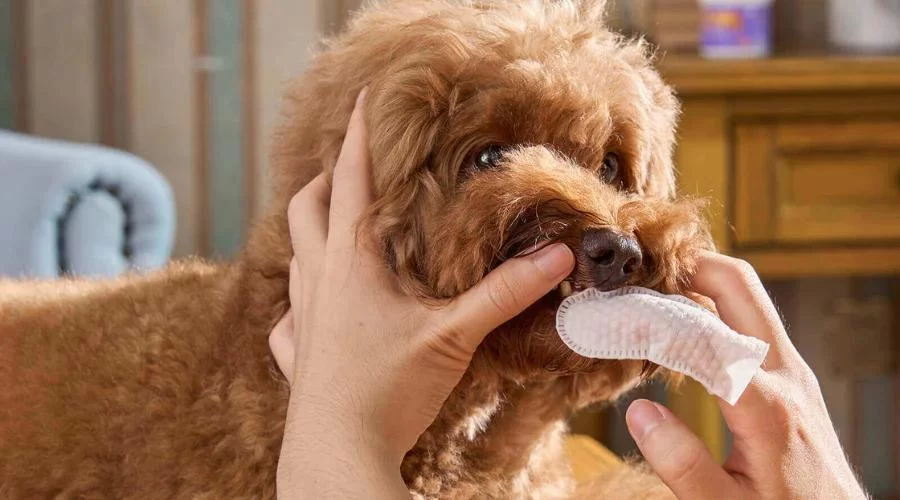Understanding Your Pet's Bad Breath
As a pet owner, there’s nothing more endearing than seeing your furry friend run up to you for a cuddle. But sometimes, as they come close for a snuggle, you're hit with an unpleasant smell — their bad breath. While bad breath in pets can be startling and unpleasant, it's a problem that many pet owners face. Over the years, I've found that dealing with bad pet breath can be tricky, but with the right knowledge and action, it's totally manageable.
Why Do Pets Get Bad Breath?
Bad breath, or halitosis, in pets often comes from the same place it does in humans: poor oral hygiene. Just like us, pets' mouths can harbor bacteria, plaque, and tartar that lead to a smelly mouth. In fact, 80% of dogs and 70% of cats experience some form of dental disease by the time they are three years old. The buildup of bacteria not only causes bad breath but can lead to serious dental problems like gum disease and tooth loss.
In addition to oral hygiene issues, bad breath can also be a symptom of more serious health problems such as kidney disease, diabetes, or gastrointestinal issues. So, it’s always worth investigating the root cause of your pet's bad breath, especially if it's a new or persistent issue.
How to Identify the Cause of Your Pet’s Bad Breath
It’s important to observe your pet's overall health to pinpoint the cause of their bad breath. If your pet's breath has suddenly changed or is unusually foul, a trip to the vet is a good idea. A vet will check for dental issues like gum disease or decay. But if your pet’s bad breath is accompanied by other symptoms like excessive thirst, urination, weight loss, or vomiting, it may indicate an underlying medical condition.
For example, sweet or fruity-smelling breath could be a sign of diabetes, while a fishy odor could point to kidney disease. Either way, it’s best not to ignore a drastic change in your pet’s breath.
Practical Ways to Combat Bad Breath in Your Pet
After recognizing the possible causes, you may wonder what you can do to tackle this issue and keep your pet’s breath fresh. Over time, I’ve learned a number of effective tips that can help reduce bad breath in pets, and many of them are simple to implement. Here’s what worked for me:
1. Regular Brushing
Brushing your pet’s teeth is the most effective way to prevent bad breath. When I first started brushing my dog’s teeth, it seemed like an impossible task. However, with patience and positive reinforcement, it became part of our routine. There are toothbrushes and toothpaste designed specifically for pets, so never use human toothpaste. Aim for brushing their teeth at least two to three times a week, or ideally every day.
2. Offer Dental Chews and Toys
If brushing sounds like too much of a challenge, try using dental chews or toys. These help reduce plaque and tartar buildup, and they also help freshen your pet’s breath. There are plenty of options on the market, from chewable sticks to rubber toys, that can aid in cleaning your pet's teeth while keeping them entertained. My dog loves his daily dental chew, and it’s made a noticeable difference in his breath.
3. Schedule Regular Vet Check-ups
Regular visits to the vet are essential not just for vaccinations but also for maintaining good oral health. During a routine check-up, the vet can check your pet's teeth and gums for early signs of disease and perform professional cleanings if necessary. This is important because even with regular brushing, plaque and tartar can build up, and a professional cleaning can give your pet a fresh start.
4. Adjust Their Diet
The food your pet eats plays a big role in their overall health, including their oral hygiene. Some pet foods are specifically formulated to help reduce plaque buildup, and some are designed to promote dental health. I switched my dog to a dental formula kibble, and I’ve noticed an improvement in his breath. Additionally, avoid feeding your pet sugary treats or table scraps, as these can contribute to poor dental health.
5. Water Additives
Water additives are another simple solution for improving your pet's breath. These liquids are added to your pet’s drinking water and help neutralize bad odors. I’ve used a few different types, and they’ve been effective in reducing my dog’s bad breath. They’re also an easy way to help with dental hygiene if your pet isn’t a fan of brushing!
Home Remedies for Bad Pet Breath
If you prefer more natural remedies, there are several options you can try at home. However, it’s always good to check with your vet before starting a home remedy regimen.
1. Coconut Oil
Coconut oil has natural antibacterial properties, and some pet owners have had success using it as a breath freshener. You can rub a small amount on your pet’s teeth or add it to their food. My dog loves the taste, and it’s a great way to naturally combat bacteria.
2. Parsley
Parsley is another natural remedy that can help freshen your pet’s breath. This herb contains chlorophyll, which neutralizes odors. You can add a small amount of fresh parsley to your pet’s food or even offer it as a treat. My dog absolutely loves parsley, and it’s a nice little bonus treat that helps with his breath.
When to Seek Professional Help
While many bad breath issues can be resolved with proper care, there are cases when professional intervention is necessary. If your pet’s breath is consistently foul despite your efforts or if they show signs of discomfort or pain when eating or chewing, it’s time to see a vet. Advanced dental disease can lead to tooth loss and infection, so addressing the problem early can help prevent serious complications.
In the end, dealing with your pet’s bad breath doesn’t have to be stressful. With regular maintenance, some lifestyle changes, and the right tools, you can keep your pet’s mouth fresh and healthy. From brushing to vet visits and home remedies, there are plenty of ways to tackle bad breath and keep your furry friend’s smile sparkling!












